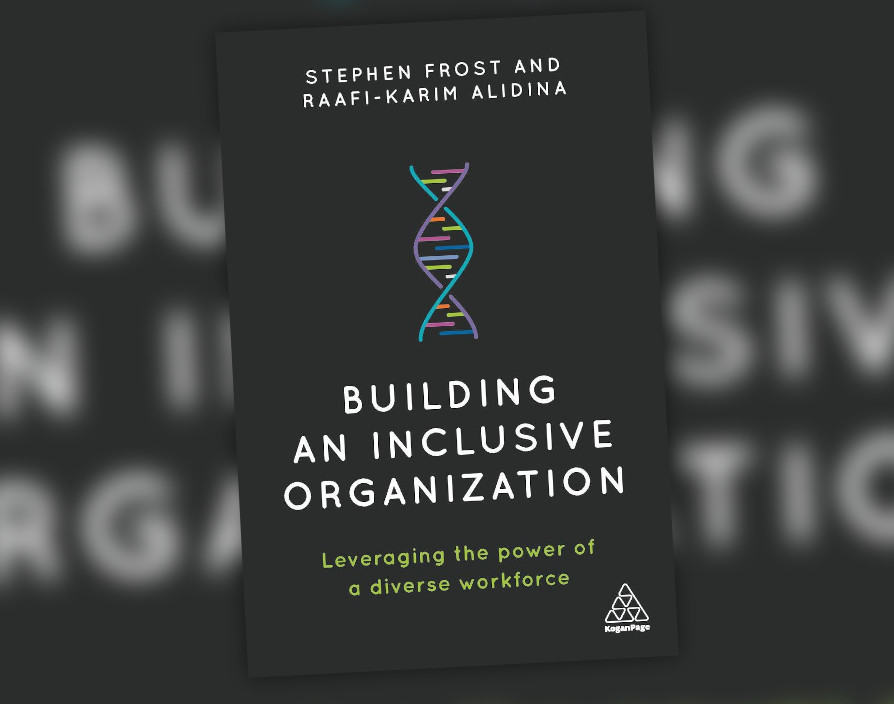2020 has been historic. These are four words, not written lightly, that underscore the importance of what we are living through. From Covid-19 upending the way we live our lives, to the long overdue racial reckoning instigated by the killing of George Floyd, it has been a year of profound impact. But what does all this mean for diversity and inclusion, the way we work and the way we live together going forward?
On New Year’s Day 2020, I was in Honduras with my partner, celebrating the year to come. In March, I was in Minneapolis with colleagues at the Forum on Workplace Inclusion, the USA’s largest such conference. As the pandemic began to dawn and the conference numbers started to dwindle, we had no idea that only two months later Minneapolis would be leading global news for a very different reason.
I travelled to Philadelphia to give a class at Wharton that got cancelled. I went to New York for a client meeting that got postponed. On 15 March, I took a plane back from an empty New York to a locked-down London. There would be no more travels for 2020.
In retrospect, those travels, an embodiment of privilege, were taken in ignorance of what was really going on. Let me discuss three 2020 events that will shape the rest of our lives.
Covid-19
As the gravity and scale of the pandemic dawned, and as our company revenues fell off a cliff in April, before recovering later in the year, it was my colleague Nick who said, this is the moment you founded the business for. We’re an inclusion consultancy. After years of growing polarization, would this crisis be the event that would shift decision-makers towards a more inclusive mindset?
For employers, Covid was in many ways a barometer for inclusion. Those who had planned or already worked hard at building inclusive cultures thrived in the face of adversity. Our client survey showed that in the majority of cases, inclusive employers prioritised the health and well-being of their people. Caring for staff in crisis paid immediate dividends. Engagement levels increased. Digital adoption and innovation accelerated overnight.
For years, campaigners had lobbied for remote and flexible working and then, suddenly, here it was. Suddenly, what was once a niche issue associated with women and childcare in particular was affecting everyone. Suddenly, requests for homeworking were a moot point. Inclusive cultures were now compatible with being physically distant.
However, socially, Covid revealed the fault lines in our communities. We contributed to the Labour Party report on the disproportionate impact of Covid in terms of infection and deaths amongst ethnic minority groups. Initial disastrous governmental responses, led by some of the most privileged in our society, compounded the situation. Already wealthy organisations and people profited on the back of Covid while there was a disinclination to listen to experts and an undermining of the pre-existing infrastructure and institutions that could have been bolstered and responded to quicker and more effectively.
For disabled people it was an especially critical situation. As I wrote in a June Forbes piece, people who were already vulnerable and dependent on medicines and others for care and support had those lifelines severed. Those in underprivileged social positions were most likely to be impacted by the economic collapse (e.g. hospitality sector workers). Free meals for impoverished children were fought for by a football player.
Black Lives Matter (BLM)
The killing of George Floyd then amplified and added texture to the issues sparked by Covid, meaning profound engagement with racial and social injustice to a perhaps unprecedented global degree.
BLM has manifested in calls for change in every aspect of our cultures and communities. It’s become a lens through which we view major global issues ‘ business, politics, health, culture, sport or publishing or tech . Whilst it’s been painful and difficult it’s also been necessary and positive.
The main difference this time is that white people are becoming activated to a previously unknown degree. Organisations have been sparked into action and are now thinking about their very structures through the lens of anti-racism. Strategy is being imbued with racial awareness. BLM has been applied within tech firms to debias algorithms and deracialise coding language. At AlixPartners, the global consulting firm, firmwide town halls fostered dialogue about BLM and its impact both internally and externally.
However, BLM has not registered to the same extent in India or China, the most populous markets on the planet. There is so much still to do to achieve racial equality. When Kobe Bryant died, several networks still misidentified him and mistook him for another Black basketball player in newsclips.
US Election
Donald Trump recorded the second highest number of votes ever. Let that sink in. Whilst the end result of a Biden-Harris win may be a positive for the disenfranchised, the climate and more progressive politics, the election revealed a deeply ugly schism in our communities that will take years to fix.
In many ways the election was a proxy argument for BLM and Covid ‘ or vice versa. Anti-vaccine, closed communities and ‘all lives matter’ on one side, and international-mindedness, participative approaches, and science-based rationale on the other. Kamala Harris becomes the first (and in her words not the last) Asian-American and African-American VP.
Biden and Harris aren’t perfect ‘ far from it ‘ but hopefully they will restore some much-needed dignity and rationality.
In politics generally, Boris Johnson, Donald Trump and other world leaders have been stricken by Covid both literally and figuratively. It was the fallout that largely determined Trump’s fate. In the fate of the UK Prime Minister’s key adviser Dominic Cummings, we see the failure of a strategy that failed to be inclusive. When people don’t work collaboratively or as a team, they succeed in the short term only.
The year has been profoundly dominated by Covid, race and politics. What’s historic is that all three phenomena have long-term impacts. In 2017, the Me Too movement came of age. In 2016, LGBT rights were reaffirmed in response to the Pulse nightclub killings. In 2020, a tipping point has been reached for people appalled by racially motivated police brutality.
Conclusion – Cognitive load
From the triple tragedies of the pandemic, racism and political polarisation, can come good. Vaccines, community and more flexible working. Greater consciousness, inclusion and calling out discrimination and unfairness. But in this extraordinary year, there remains a key barrier to greater inclusion. A barrier to the permanence in shift many of us are yearning for, and it’s inside our own heads.
When we are busy, fearful, and stressed we operate in what Daniel Kahneman called System 1 thinking. Only when we breathe, pause and reflect do we consciously adopt System 2 thinking. It is heart wrenching that it takes a pandemic or a murder to make us stop and shift gears. But only when we consciously include will we avoid unconsciously excluding.
I am proud that at f(i) we are launching our inaugural Impact Report, which further reflects on the year ‘ and indeed the decade ‘ that was and looks ahead to the next.
2020 has been the definitive year for inclusion. With Covid, BLM, the US election, Brexit, and social, environmental, technological, political and economic polarisation it’s been the most significant year I’ve experienced in my entire career.
“
Share via:








































